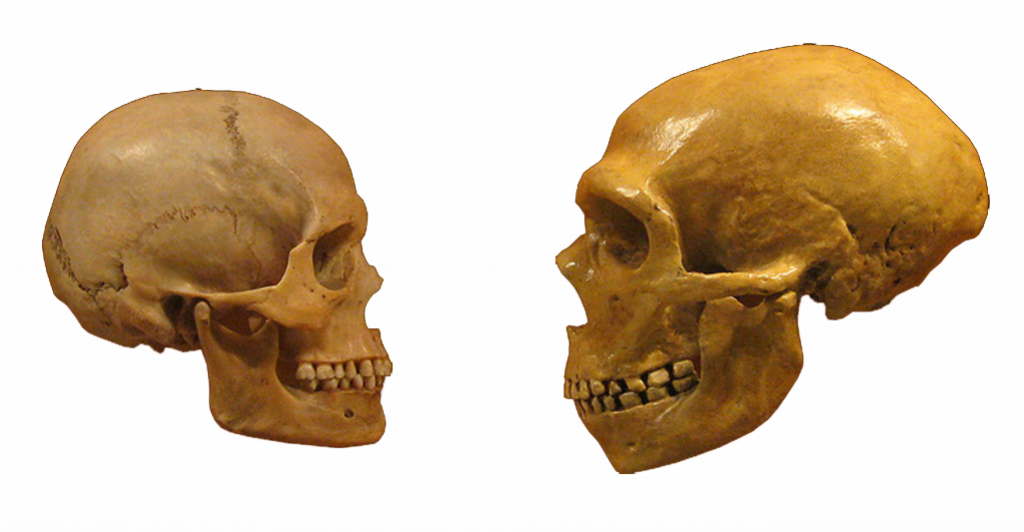
The Cognitive Biology of Language Group is led by Cedric Boeckx (ICREA Research Professor) and is based at the University of Barcelona. The group focuses on the neurobiological foundations of the human capacity to naturally acquire grammatical systems. Because, as we all know, nothing makes sense, except in light of evolution, we are strongly committed to a Darwinian vision, and believe we can learn a lot about human language from non-linguistic cognition, in us as well as in other ‘non-linguistic’ species. We are by no means the first or only group to say that there is something biological about our language acquisition capacity, but we take as our slogan Eric Lenneberg’s assertion, back in the early 1960s, that “nothing is gained by labeling the propensity for language as biological unless we can use this insight for new research directions—unless more specific correlates can be uncovered.” That is to say, if one is serious about our language capacity having biological roots, we must do some biology. At the very least, one has to try to formulate hypotheses at the right level of analysis, not only for linguists, but also for researchers in allied disciplines, so that these hypotheses can be put to the test. It stands to reason that in order to do so one has to have some knowledge of these allied disciplines. It won’t do to say that researchers outside linguistics know very little about language. Our task is to collaborate with them to bridge the gaps, and build linking hypotheses. We see this as the only way to solve what David Poeppel has called the “granularity mismatch” problem that vitiates interdisciplinary dialog.
Members of the Cognitive Biology of Language Group recognize that the entity called “language” is the result of a complex interplay between nature and nurture, that a great deal of that complexity is not innately built in, but rather emerges in the course of learning and transmission. It is also clear to us that the mosaic nature of language demands a broad comparative method, recognizing the mental richness of other species. It also demands an analysis across several levels of description, carefully, linking the genome, the brain, and the mind.
We work closely with geneticists, neuroscientists, and clinicians, as well as comparative psychologists, both locally and internationally, because there is no substitute for such direct interactions in order to identify how the various parts of the puzzle we care about might fit.
As we proceed, we come to appreciate the usefulness of insights coming from various linguistic traditions often seen as antagonostic. Our experience suggests that inter-disciplinarity enhances intra-disciplinary dialog.
Some of our current research questions are the relationship between brain and skull both at the level of evolution and diseases, self-domestication processes, the oscillatory neural code for language, the role of Broca’s (sub)regions, the interplay between brain shape and size, lateralization effects, the importance of subcortical structures in language (thalamus, basal ganglia, hippocampus, cerebellum), the nature of protolanguage(s), the ‘speech’-like abilities of non-human primates, and more. By working on these topics we hope to illustrate the promises of cross-species, cross-domain, and cross-“omes”.
We also take an active interest in philosophy of biology and of cognitive science, which we regard as very important in the case of young disciplines like ours.
Because the issues we work on are so complex, we need all the help we can get, so we always welcome new members and collaborators.
The establishment of this research initiative was made possible by the Catalan Institute for Research and Advanced Studies (ICREA), the University of Barcelona, and a Marie Curie International Reintegration Grant awarded to Cedric Boeckx from the European Union [PIRG-GA-2009-256413], and research funds from the Fundacio Bosch i Gimpera. Some of our research is made possible by grants from the Spanish Ministry of Economy and Competitiveness [FFI-2010-20634, FFI-2013-43823-P, FFI-2014-61888-EXP, FFI-2106-78034-C2-1-P/FEDER], from the Catalan Government [2014-SGR-200, 2017-SGR-341]. We are also a proud member of the Japan-based project MEXT/JSPS Grant-in-Aid for Scientific Research on Innovative Areas 4903 (Evolinguistics: JP17H06379)
